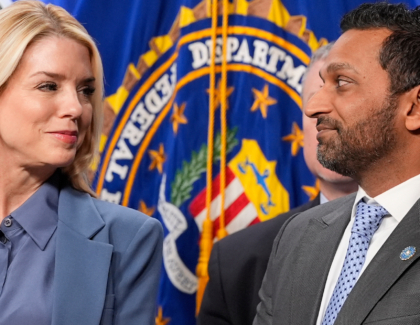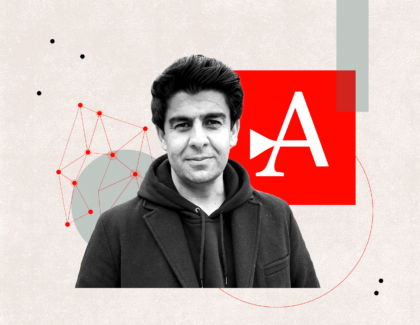Sign up for the daily CJR newsletter.
Pete Buttigieg is having a moment. In recent weeks, the longshot presidential bid of the hitherto obscure Democratic mayor of South Bend, Indiana, has attracted intense media interest. Yesterday, “Mayor Pete” chatter amped up again: New York magazine unveiled its new Buttigieg cover package; Politico Magazine dropped its own, similar profile; and The New York Times put him on A1 (albeit below the fold). Later in the day, Buttigieg’s official campaign launch, in South Bend, made a buzz. “The only time I have heard as excited a reaction to a campaign as I heard today about Buttigieg’s launch was Barack Obama in 2008 and Ronald Reagan in 1980,” Joe Scarborough—who already hyped Buttigieg after a March interview on Morning Joe—tweeted. “Yes, it’s very early. But the reaction has been remarkable.”
Buttigieg stories usually hit the same notes—millennial; openly gay; veteran; speaks Norwegian; plays piano; reads Joyce; “it’s boot-edge-edge”; Chasten, his husband, the breakout social media star—the list goes on. Taken together, these talking points explain a large part of the Buttigieg boom. His generational alignment and sexual orientation open up legitimate new conversations about the direction of US political culture. Other aspects of Buttigieg’s media appeal, however, invite greater self-reflection on our part. He’s a white man in a cycle that has so far paid disproportionate attention to white male candidates. His liberal-yet-Midwestern-folksy positioning intrigues watchers of the horse race (fund-raising tallies are commonly touted; so are the assessments of Democratic operatives). His overt, cultured intellectualism makes him an obvious foil for Trump, without forcing us to think too hard about the structural forces that put Trump in the White House. And he’s fun: a TV-character candidate pitched somewhere between the West Wing and Parks and Recreation writers’ rooms.
ICYMI: WaPo‘s tagline is “Democracy Dies in Darkness.” The paper published an op-ed that undermines that.
Another big reason Buttigieg has blown up? Access. In her New York cover story, Olivia Nuzzi writes that Buttigieg “will say yes to any interview.” Yesterday, she reinforced that point on CNN’s Reliable Sources. “His campaign’s been very savvy giving a lot of access to really whoever asks for it,” she told host Brian Stelter. “He’s really everywhere… Nobody else is that accessible right now and I think that really counts for a lot. It makes a big difference in how much attention you get at an early stage if you’re available for comment or for an interview.”
The press, obviously, should welcome the opportunity to engage openly with candidates for public office. But access alone isn’t a good reason to lavish disproportionate attention on one candidate over all the others. Buttigieg has attracted some good, thoughtful reporting. Overall, however, it’s hard to escape the impression that we’ve let Buttigieg talk his way into serious presidential contention without demanding much substance. As several features on Buttigieg have noted, his platform, as far as it exists, is long on values and hopeful-sounding rhetoric, but short on policy specifics, at least compared to rivals like Elizabeth Warren. In the Times, Alexander Burns devoted a whole article to Buttigieg’s longstanding preoccupation with personality and messaging, at the expense of hard detail. In news coverage, however, that strategy is rarely more than a footnote. It seems, collectively, that we’re wise to what Buttigieg is doing. And yet we have fallen for it.
Buttigieg told Nuzzi that he’ll use “substance” to outlive his “flavor-of-the-month period.” (“What does that mean?” Nuzzi writes. “I have no idea.”) But he told Burns it would be “inauthentic” for him to outline too many proposals because presidents aren’t free to execute the letter of their plans. There’s plenty to be skeptical about here. To date, however, the bulk of Buttigieg coverage has contrived to turn him into a Thing, then marvel that he’s somehow become a Thing, with questions coming later. Will his moment last? Going forward, our coverage choices will determine the answer.
Below, more on Pete Buttigieg:
- Explaining the appeal: Nuzzi offers a memorable one-paragraph summation of Buttigieg’s appeal. “Sick of old people? He looks like Alex P. Keaton. Scared of young people? He looks like Alex P. Keaton. Religious? He’s a Christian. Atheist? He’s not weird about it. Wary of Washington? He’s from flyover country. Horrified by flyover country? He has degrees from Harvard and Oxford.” It goes on. Read the rest here.
- A media transformation: An interesting nugget from Adam Wren’s piece for Politico Magazine: “In [Buttigieg’s] first visits to New Hampshire, he could reliably fill somebody’s living room. Today, he’s getting stopped by fans in airports—though they sometimes mistake him for a reporter, he jokes, since he’s on cable news so frequently—and has a dedicated pack of national and international reporters following him, a byproduct of those well-received TV interviews.”
- On Fox: According to Wren, Buttigieg was the first Democratic candidate for 2020 to appear on Fox News Sunday. While the Democratic National Committee has sworn off Fox News as a debate partner, individual candidates are free to appear on the network if they choose. Tonight, Bernie Sanders will participate in a Fox News town hall in Bethlehem, Pennsylvania, at 6.30pm ET.
- Deep breaths: As Buttigieg coverage started to amp up earlier this month, The Washington Post’s Margaret Sullivan wrote that it was time for a “few deep breaths… A young, promising politician having his media moment can be captivating. It’s part of what makes politics a great spectator sport. And it might even turn out to mean something. But, remember, we’ve been here before. Howard Dean had his moment in 2003. So did Herman Cain in 2011. Somehow, life went on. Pulse rates returned to their normal levels.”
Other notable stories:
- The 2019 Pulitzer Prizes will be announced at Columbia Journalism School later today. Ahead of time, Poynter’s Roy J. Harris, Jr., and Vanity Fair’s Joe Pompeo assessed the likely runners and riders: they include The Washington Post’s coverage of Jamal Khashoggi, its murdered former contributor; The Wall Street Journal’s reporting on Trump’s hush money payments during the campaign; the Times’s work on Facebook and on Trump’s taxes; ProPublica’s gut-wrenching coverage of the border; and local reporting from the LA Times, Miami Herald, and Tampa Bay Times. You can watch the livestream here from 3pm ET.
- After the New York Post ran a front-page attack on Representative Ilhan Omar last week, a trade association representing Yemeni-American bodega owners called for a boycott on sales of the paper; the front page, it wrote, aimed “to harm Omar and her family and other people of the Islamic faith.” On Reliable Sources yesterday, Stelter tracked how the “right-wing rage machine” framed recent remarks by Omar as minimizing 9/11, then propelled the controversy into the president’s Twitter feed.
- CJR’s Zainab Sultan checked in with journalists from Sudan, where long-serving president Omar Al Bashir was ousted in a coup last week following months of protests. “Yesterday, video journalists were allowed to cover the demonstrations for the first time,” Sultan reports. “On Twitter, Wasil Ali, the former editor of Sudan Tribune, wrote that Security Services sent a message to all editors that ‘media censorship has been lifted.’” Others, however, expressed skepticism.
- During a press conference in Lima, John Hudson, a reporter for The Washington Post, asked Peru’s foreign minister how he would respond if Western sanctions on the government of Venezuela exacerbated the latter country’s humanitarian crisis. US Secretary of State Mike Pompeo, who was also present, said the question “showed an incredible lack of understanding,” and accused Hudson of blaming the Venezuela crisis on the US. “You shouldn’t ask questions like that,” Pompeo added.
- On the Recode Decode podcast, House Speaker Nancy Pelosi told Kara Swisher that tech companies are abusing Section 230 of the Communications Decency Act—which absolves platforms of legal responsibility for content other people post on them—and warned the provision “could be a question mark and in jeopardy.” Writing for CJR after Devin Nunes, the pro-Trump congressman, sued Twitter last month, Jared Schroeder argued that Section 230 should be revised. On Friday, meanwhile, Tony Biasotti weighed the “real costs” to the press of Nunes’s latest lawsuit, against McClatchy.
- According to a Pew Research Center survey, Americans in urban communities tend to think local news outlets cover their area, whereas Americans in rural communities tend to think local outlets cover a different area, such as a nearby city. “Despite feeling that the local news media are less connected to their communities, rural residents express the same level of desire as urban and suburban residents for getting news from journalists who are personally engaged in their communities,” Pew’s Elizabeth Grieco writes.
- After city officials declared a measles outbreak in Brooklyn to be a public health emergency last week, Der Yid, an ultra-Orthodox Yiddish-language newspaper, published a scathing editorial against anti-vaxxers, and took the “rare step” of translating it into English, The Forward’s Alyssa Fisher reports. Last week, CJR’s Amanda Darrach wrote that mistrust of mainstream media among the local Orthodox community had opened the door to targeted anti-vaccine propaganda.
- Late last week, The Boston Globe unpublished an op-ed in which Luke O’Neil suggested waiters would be “serving America” by tampering with the food of former Trump administration officials like Kirstjen Nielsen, and listed “not pissing in Bill Kristol’s salmon” as one his “biggest regrets.” Shirley Leung, the Globe’s interim editorial editor, told WGBH that the piece was pulled at the urging of the paper’s owners. O’Neil said the column wasn’t a literal instruction and expressed his disappointment at the decision.
- And CityScene STL, a news website in St. Louis, also took down an article last week. The site reported that Eric Greitens, the disgraced former governor of Missouri, was plotting a comeback, but its sources for the story turned out to be fake. The Kansas City Star’s Jason Hancock has more.
ICYMI: The problem with Captain America’s new ‘both sides’ website
Has America ever needed a media defender more than now? Help us by joining CJR today.







